Robert Conquest: Revealing the horror of Stalin
- Published
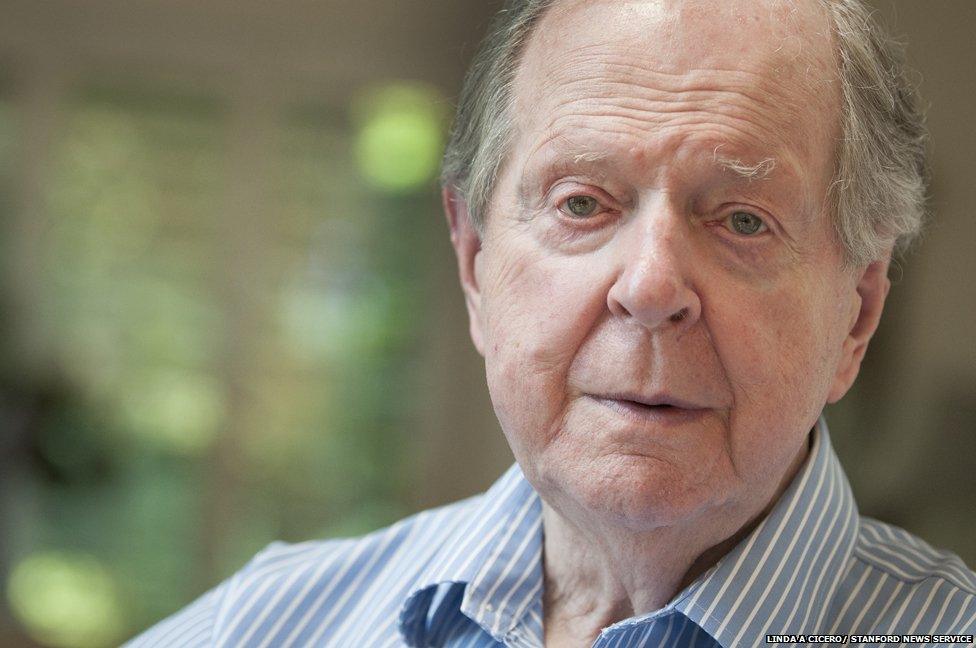
The historian Robert Conquest, who has died at the age of 98, is credited by many as the first to reveal the extent of the horror of Joseph Stalin's regime. His books had a powerful effect on communists in the West, writes Stephen Evans.
If you were brought up in a communist home, Robert Conquest's books really were a revelation.
In my case, two of my grandparents were members of the Party (as it was invariably called without ever needing to say which party). My father's father joined not that long after 1917's October Revolution in Russia and stayed faithful (it's the right word) through the invasions of Hungary and Czechoslovakia, unshaken by every revelation and counter-revolution.
At my grandfather's dinner table in Bedlinog, south Wales, debate was intense but futile. It was like arguing with the most devout of religious believers. Whatever came down as the line in Soviet Weekly or the Morning Star stood as gospel.
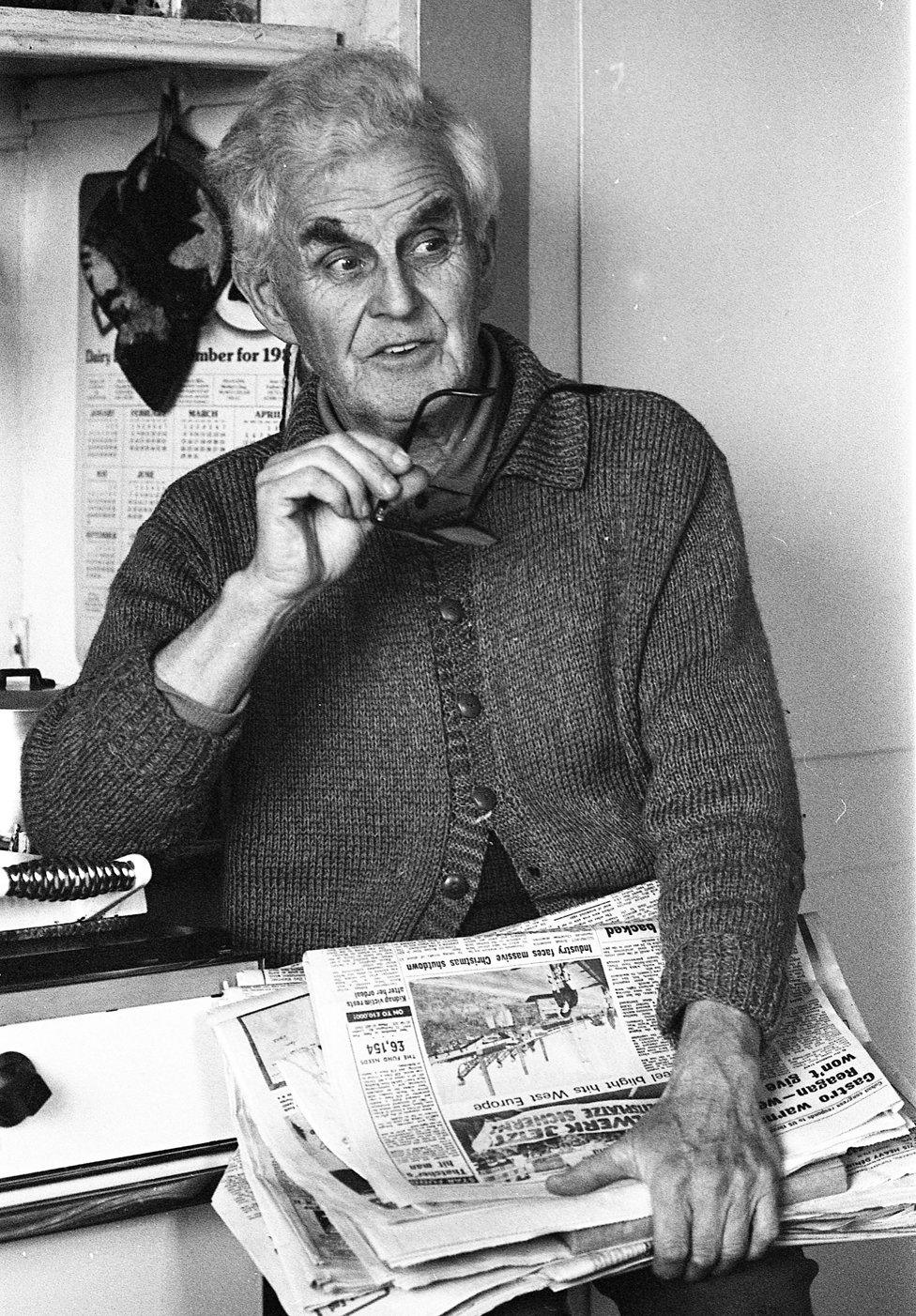
Edgar Evans, pictured in 1975, holding a number of issues of the Morning Star newspaper
He had the collected works of Stalin on his shelf (not obviously worn with reading). When my grandmother opined at the dinner table that there must be at least some crime in the Soviet Union, her husband told her to "stop her bloody lies".
My father remembered the relief he felt as a young boy in the mining village when Hitler turned on Stalin in 1941 and invaded the land of his former partner-in-crime. Before that, the family had feared internment. But now the Red Army suddenly became allies of Britain and communists became the most vociferous supporters of the cause. According to his son, my grandfather, a communist councillor, received extra petrol rations to tour the Valleys drumming up support for the war effort.
This religious atmosphere continued, and it was not un-typical during the Cold War. Any doubt cast on the achievements of the Soviet Union was simply dismissed as "Cold War propaganda". When a notable dissident was imprisoned in a mental hospital, the view was that he must be mad if he doubted the merits of Soviet socialism.
So for those of us who did have doubts, Robert Conquest's The Great Terror: Stalin's Purge of the Thirties was an extraordinary work.
It was a book which changed minds and dispelled doubt (mine included) when it was published in 1968, the year of the Soviet invasion of Czechoslovakia in response to the liberalisation of the Prague Spring.
It laid out facts without adornment so they could speak for themselves, spelling out in clear language the detail of the purges and the executions. Fellow travellers of the Soviet Union sneered - and perhaps still sneer - but they couldn't find factual errors because Conquest's research was so meticulous.

Joseph Stalin
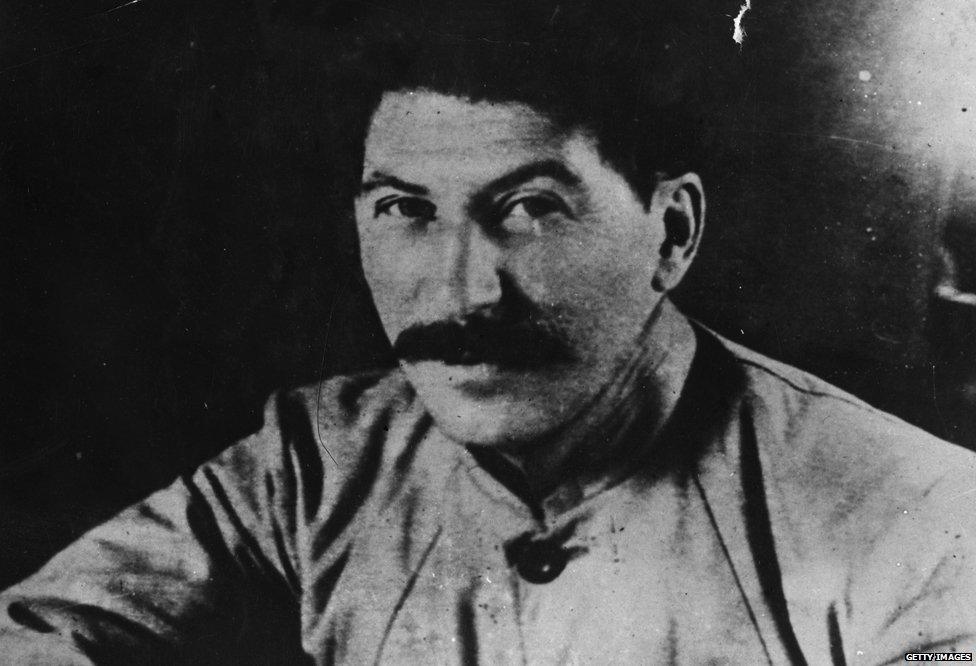
Born Iosif (Joseph) Vissarionovich Dzhugashvili he adopted the name Stalin which meant "man of steel"
He studied to be a priest but left the seminary after failing to turn up to his exams
After Lenin's death he ruthlessly promoted himself to become dictator of the Soviet Union
In Stalin's Great terror around 750,000 people were summarily killed
Stalin played a decisive role in Nazi Germany's defeat in WW2

When Soviet archives were finally opened up, Conquest's descriptions remained unimpaired. There could be debate about numbers - the precise number of millions of Stalin's victims - but not about the bulk of the facts presented.
Even into the 1960s, it had seemed to many like there was a battle of equal ideas. But then came Robert Conquest's descriptions of Soviet reality.
We were told clearly how hundreds of thousands of people were shot by the Soviet secret police in a matter of months in 1937 and 1938. We learned how the purges of officers by a paranoid Stalin were so fierce that the fighting ability of the Red Army was jeopardised.
Conquest described how on a single day, 12 December 1937, Stalin and his henchman, Molotov, personally approved death sentences on 3,167 people - and then went to the cinema.
The detail was unanswerable.
And then Conquest did it again, with The Harvest of Sorrow: Soviet Collectivization and the Terror-Famine about the famine in Ukraine in 1932-33, caused by a foolish and vindictive agricultural policy driven beyond destruction by Stalin.
Conquest documented coolly what happened in individual villages. He described the cannibalism and starvation.
In the pre-war era, the great Welsh journalist, Gareth Jones, travelled through Ukraine and saw the truth of the famine, publishing articles, external in 1933. But bigger voices were against him, like the New York Times Moscow correspondent, Walter Duranty, who parroted Stalin's propaganda, external.
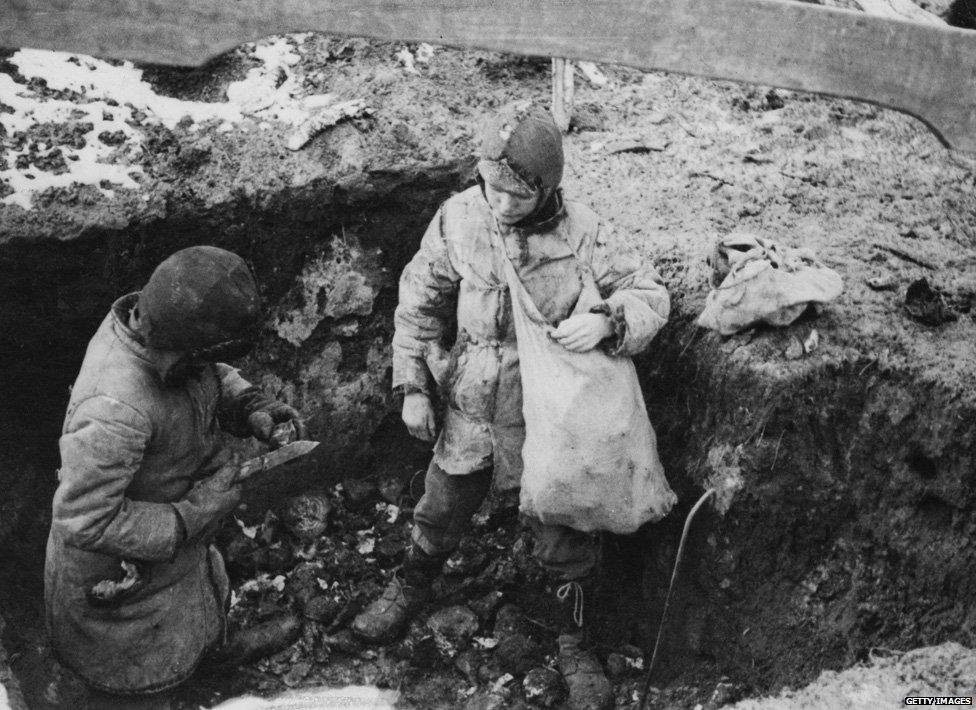
Two boys with a cache of potatoes they have found during the famine in the Ukraine, 1934
Duranty wrote in that august newspaper that there was no famine: "Conditions are bad, but there is no famine". And then of Stalin's policy, he invoked the notorious phrase: "You can't make an omelette without breaking eggs."
When Robert Conquest's books came out, it became undebatable that Duranty was wrong and Jones was right.
There was about the Cold War an element of faith - disillusioned communists talked of the god that died. But for the ultra-faithful, no doubt could dent the belief even as the evidence mounted before their own eyes.
When Stalin was finally denounced by Nikita Khrushchev in 1956, my grandfather became ill with a nervous condition. The collected works of Stalin were moved behind the television.
My grandfather died just as the Soviet Union collapsed. He was too confused in his old age to realise that his god had died. He never read Robert Conquest's books - he would have seen them as the most despicable Cold War propaganda.
It is said that the Mexican writer Octavio Paz said that Conquest's books "closed the debate" on Stalinism. They ended the argument. That isn't true. Nostalgia for the monster remains, perhaps even in Russia today.
But Conquest's books did open the eyes of those with minds to open. I know. I remember.
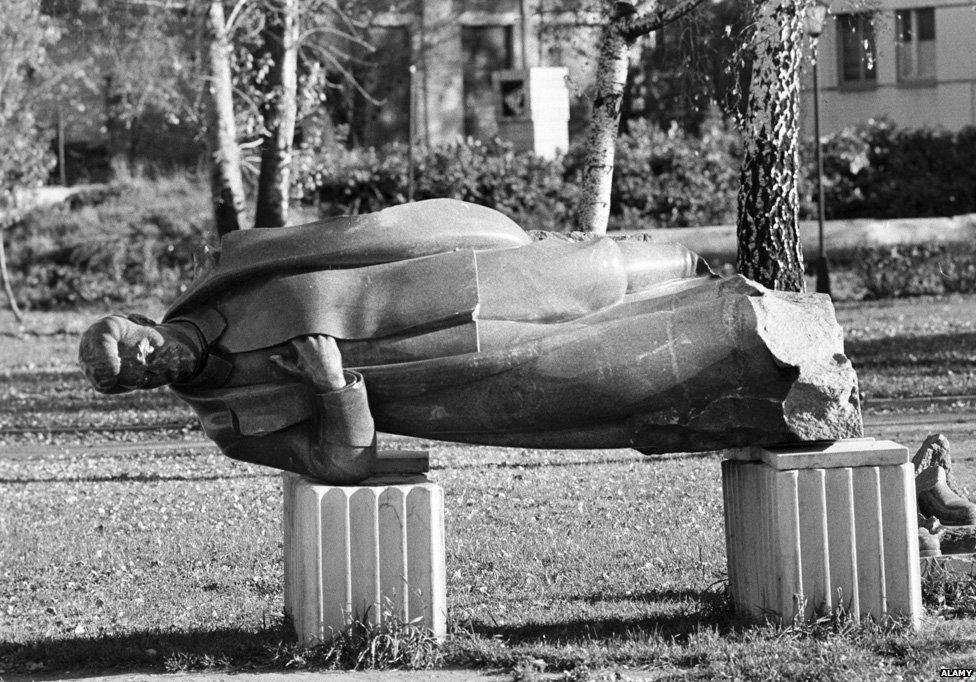
Subscribe to the BBC News Magazine's email newsletter, external to get articles sent to your inbox.